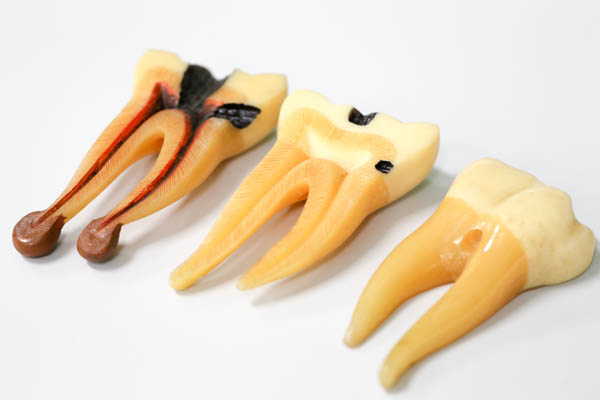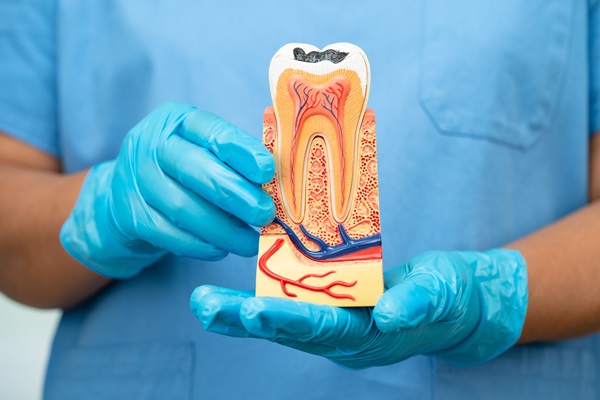What Will Happen During a Root Canal Procedure?

A root canal procedure is a type of dental treatment in which they remove the infected or decayed pulp in the root of a tooth to prevent the spread of an infection and preserve the long-term health of the tooth. It is helpful to understand the process dentists use during a root canal procedure to mentally and physically prepare before treatment.
Steps involved in a root canal procedure
Although dentists tailor the treatment process specifically for each patient, there are common steps during a root canal procedure that patients can expect. In most instances, patients can expect four steps during the process, which include the consultation visit, the procedure that involves removal of the infected pulp, cleaning and sealing the tooth and applying the dental crown.
The consultation
The first step in the treatment process is a consultation visit. Patients who have signs of a tooth infection should visit the dentist to see if a root canal procedure is necessary. These symptoms include severe toothache, sensitivity to hot and cold foods and gum complications. During the first visit, the dentist will discuss the symptoms with the patient and conduct an oral examination to determine the severity of the concern and what treatment options are available. The dentist may also order dental X-rays on the first visit if additional testing is needed.
Removing the infected pulp
If a follow-up visit is scheduled for a root canal procedure, then the dentist will likely start by numbing the tooth to minimize discomfort during treatment. They will then carefully access the root of the tooth where the infection is present. Using either small dental tools or laser dentistry, the dentist will then remove the infected, decayed or damaged pulp material in the root of the tooth.
Cleaning and sealing the tooth
After removing all of the problematic dental pulp, the dentist will then clean the affected area and fill the tooth. This ensures the tooth is not vulnerable to other concerns in the future and allows the tooth to fill and function in a more normal manner. After sealing the tooth, the dentist will take a dental impression and place a temporary crown while the permanent crown is created.
Placing the dental crown
Most root canal procedures require a dental crown to ensure the tooth is properly protected from further damage. The dental crown will take some time to create, and the patient will wear a temporary crown while they wait. Once the permanent crown is ready, the patient will have a follow-up visit for the placement of the permanent crown. The dentist will also provide aftercare instructions to help the patient care for their crown long term.
A dentist can help you through a root canal procedure
You can learn more about how a root canal procedure works by contacting our experienced and professional dental professionals today. We are happy to address your questions and concerns and explain all available treatment options so that you can make the most informed decision.
Are you considering a root canal in the Gibbsboro area? Get more information at https://beautifulmouth.com.
Check out what others are saying about our dental services on Yelp: Root Canal in Gibbsboro, NJ.
Recent Posts
Dentists recommend root canal treatment for damaged, diseased, or infected teeth. The treatment aims to eliminate bacteria within the tooth's pulp and save a patient's natural teeth. After a tooth matures, it no longer requires the pulp for nourishment. The dentist removes the infected pulp, disinfects the inside, and seals it to prevent reinfection.Decay and…
A root canal is a restorative procedure that can save a tooth from severe infection. If you are experiencing extreme pain in your mouth, you may need this treatment. This is no process to dread despite what you have heard about it. Your dentist will take great care to make you feel at ease. Do…
A preventative dentistry question people commonly have is, "what stains teeth the most?" We will look at some of the foods and beverages that are teeth staining to help you avoid these and keep a white smile longer. There are lots of different foods that can stain teeth. Some are well known and obvious. Blueberries, for…
Knowing when to seek emergency dental care can be tricky. While many dental issues are extremely time sensitive, others can be left for months with little risk.Some tooth problems, like cavities, are slow to change. If there is no pain and the dental issue is not the result of trauma, usually treatment can wait until…


